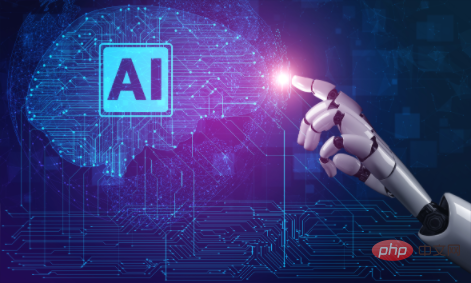Home >Technology peripherals >AI >How will artificial intelligence change biotechnology?
How will artificial intelligence change biotechnology?
- WBOYWBOYWBOYWBOYWBOYWBOYWBOYWBOYWBOYWBOYWBOYWBOYWBforward
- 2023-04-12 12:22:101636browse

Machine learning and artificial intelligence have taken the world by storm, changing the way people live and work. Advances in these areas have elicited both praise and criticism. It is known that AI and ML offer multiple applications and advantages in a wide range of fields. Most importantly, they are transforming biological research, leading to new discoveries in healthcare and biotechnology.
Here are some use cases of ML in biotechnology:
Identification of gene coding regions
Next generation sequencing has greatly improved by sequencing genes in a short time Genomics research. Therefore, machine learning methods are used to discover gene coding regions in the genome. This machine learning-based gene prediction technology will be more sensitive than traditional homology-based sequence analysis.
STRUCTURE PREDICTION
PPI has been mentioned before in the context of proteomics. However, the application of ML in structure prediction increased the accuracy from 70% to over 80%. The application of ML in text mining is very promising, with training sets used to discover new or unique pharmacological targets from many journal articles and searched secondary databases.
Neural Network
Deep learning is an extension of neural networks and a relatively new topic in ML. The term “depth” in deep learning refers to the number of layers through which data changes. Therefore, deep learning is similar to a multi-layered neural structure. These multi-layered nodes attempt to simulate how the human brain works to solve problems. ML already uses neural networks. For analysis, neural network-based ML algorithms require refined or meaningful data from the original data set. However, the increasing amount of data generated by genome sequencing makes it more difficult to analyze important information. Multiple layers of a neural network filter information and interact, allowing the output to be improved.
mental illness
Anxiety, stress, substance use disorders, eating disorders, and other symptoms of mental illness are all examples. The bad news is that most people don't get a diagnosis because they aren't sure if they have a problem. This is a shocking but cruel reality. Until today, doctors and scientists have not been as effective at predicting mental illness. Yes, technological innovations enable healthcare professionals to create smart solutions that not only detect mental illness but also recommend appropriate diagnostic and treatment techniques.
Artificial Intelligence in Healthcare
Hospitals and healthcare providers widely adopt machine learning and artificial intelligence (AI) to improve patient well-being, personalize treatments, make accurate predictions, and improve quality of life. It is also used to improve the efficiency of clinical trials and speed up the process of drug development and marketing.
Final Thoughts
The development of digitalization has made the 21st century data-centric, affecting every enterprise and department. The healthcare, biotech and biotech industries are not immune. Enterprises are looking for a solution that can integrate their operations with powerful solutions and provide the ability to record, exchange and transfer data in a systematic, faster and smoother way. Bioinformatics, biomedicine, network biology, and other biological subfields have long faced challenges in biological data processing.
The above is the detailed content of How will artificial intelligence change biotechnology?. For more information, please follow other related articles on the PHP Chinese website!
Related articles
See more- Technology trends to watch in 2023
- How Artificial Intelligence is Bringing New Everyday Work to Data Center Teams
- Can artificial intelligence or automation solve the problem of low energy efficiency in buildings?
- OpenAI co-founder interviewed by Huang Renxun: GPT-4's reasoning capabilities have not yet reached expectations
- Microsoft's Bing surpasses Google in search traffic thanks to OpenAI technology

